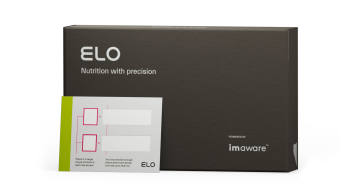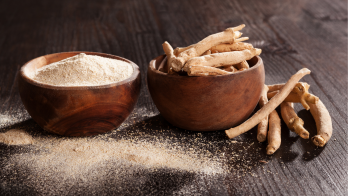How personalized protein powder and Smart Dosing can help you recover better
Want to recover better but don’t know where to start? Here’s how personalized protein powder and Smart Dosing can help you get the most out of your workouts.
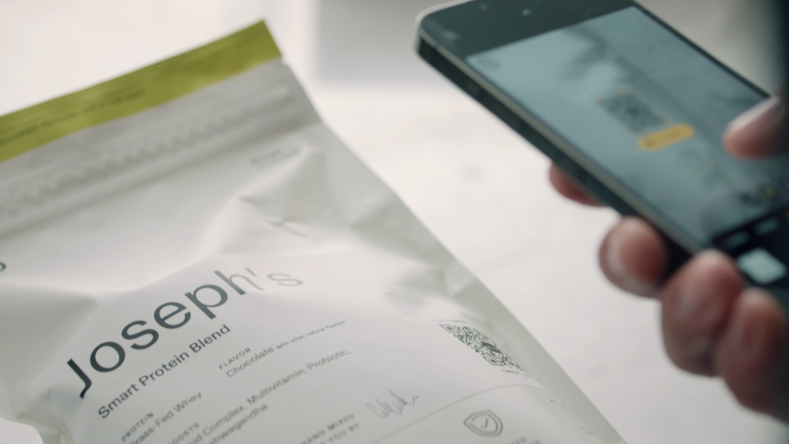
If you want to hone in on your post-workout nutrition, you may have considered adding protein powder to your routine. This popular supplement has long been praised by athletes and recreational gym-goers alike, and for good reason–protein is a macronutrient that plays a crucial role in cell regulation, nerve function, and muscle synthesis [ 1 2
But protein supplementation can get complicated, especially when you consider the more intricate details of consuming post-workout protein. From nutrient timing to protein amounts, it can be easy to get lost in the noise, but it’s important to understand how protein (and specific dosing amounts) can aid in your recovery strategy.
In this article, we will discuss personalized protein powder and how Smart Dosing can help you dial in your protein game.
What is personalized protein powder?
Since we all have different nutritional needs and goals, you need a protein powder that will work for you, not against you. That’s where personalized protein powder comes into play–a custom blend of protein tailored to your body’s needs that can support your unique health and fitness goals and help drive outcomes. Think of it as a supplement and protein powder in one scoop, uniquely designed for you and your recovery needs.
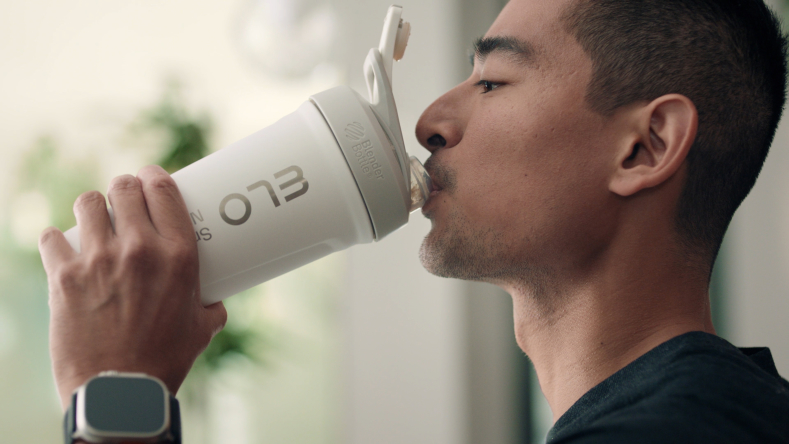
Introducing Elo Smart Recovery
Elo Smart Recovery
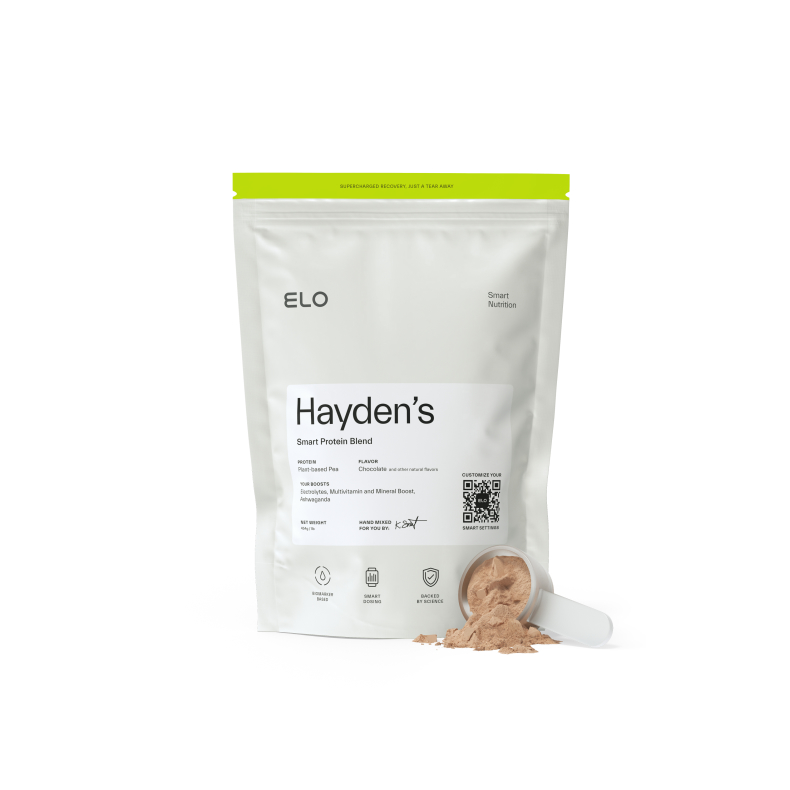
This product is perfect for exercise enthusiasts of any age who want to maximize post-workout recovery. Each blend is hand-mixed just for you and is optimized to deliver the right amount of protein and key amino acids after each workout to help you recover faster.
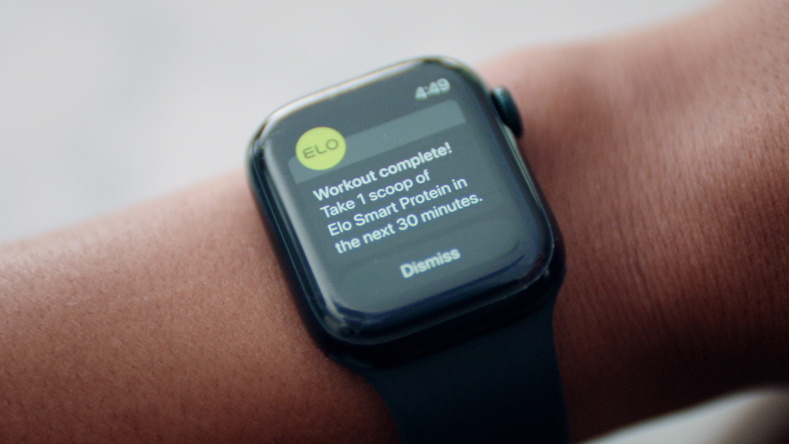
Unlike other protein powders, Elo Smart Recovery draws data from your wearables and fitness apps to provide specific protein dosing recommendations (Smart Dosing) after every workout. You are also paired with an Elo Nutritionist
Learn more about Smart Recovery, including how we build your blend and why it can help accelerate post-workout recovery in
this article
.
Here’s what’s included in Elo Smart Recovery:
Choice of high-quality protein (grass-fed whey or plant-based pea protein)
Functional nutrient boosts, like electrolytes, amino acids, a carbohydrate complex, turmeric, probiotics, super greens, collagen, and ashwagandha
Real-time dosing guidance for every tracked workout
Dietitian chat for advice on demand
454 g per bag*
Get 30% off your first order with code TRY30
*Number of servings per bag will vary based on your workout activity.
Our protein blends undergo rigorous third-party testing to ensure that what you see on the label is what you get. We go to great lengths to ensure that the ingredients in your protein blend are pure and effective. Learn more about Elo’s third-party testing process
here
.
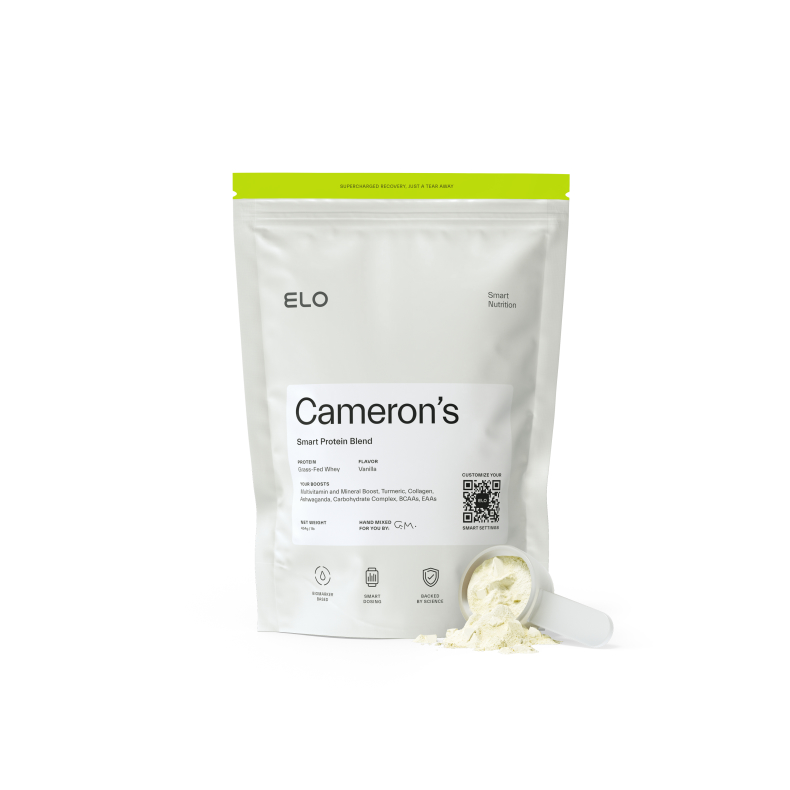
How does Smart Dosing work?
Some workouts are longer and more intense than others, warranting additional protein for optimal recovery. That’s why Smart Protein the Elo app syncs with your wearables to provide specific dosing recommendations after every workout–our Smart Protein dosing recommendations are carefully calibrated to provide exact protein amounts and help you recover better.
Here’s a step-by-step guide on how to
connect your wearables to Apple Health
.
Each Smart Protein dosage is calculated based on the activity you completed, your body weight, and the leucine content of your mix. Research indicates that consuming 1-3 g of leucine (an essential amino acid) after a workout helps maximize muscle protein synthesis, and dosage recommendations are crafted accordingly [ 3
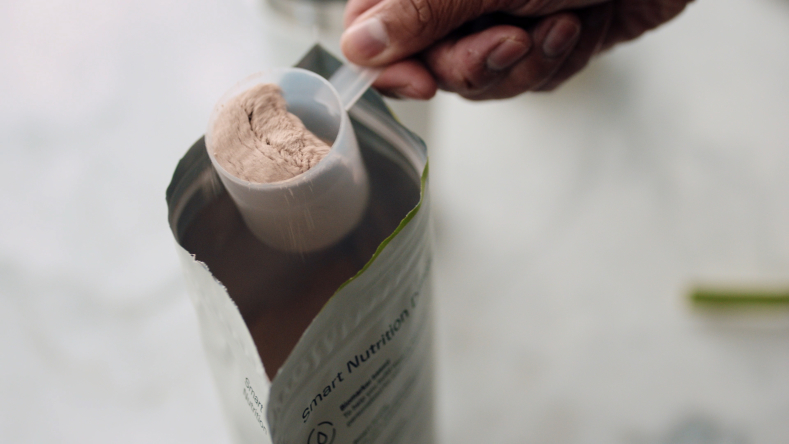
3 ways Smart Dosing can elevate your performance
By getting the right amount of protein at the right time, you can build muscle, recover faster, and perform better. But how is Elo Smart Protein more efficient than the current post-workout status quo?
Here are three ways that Smart Dosing can elevate your performance and boost recovery.
1. No more guesswork.
Picture this: you just finished a sweaty workout and feel fatigued. You may know that getting enough protein is important for muscle growth, recovery, and strength, but how much do you need after each workout?
Research shows most adults need anywhere from 0.8 to 1.2 g/kg/day, while some athletes may need up to 2.2 g/kg/day [ 1
And while research shows that consuming 20-40 g of high-quality protein within two hours of exercise can stimulate muscle protein synthesis, it can be challenging to know where you fall within that range [ 4
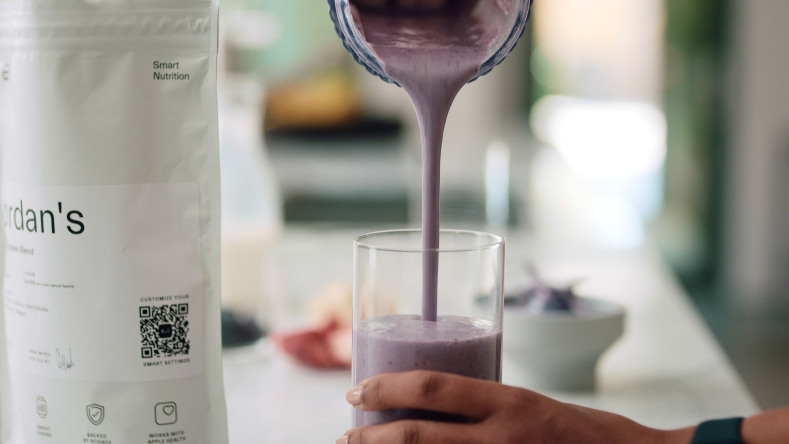
2. Never miss your post-workout window.
When it comes to post-workout nutrition, time is of the essence. After a workout, your body immediately goes into repair mode, rebuilding muscle tissue and replenishing depleted glycogen stores. Timing also matters because your body’s ability to utilize critical nutrients increases directly after exercise, but only briefly.
Research shows the optimal time to start replenishing fuel and fluid is 15-60 minutes after you finish exercising [ 5
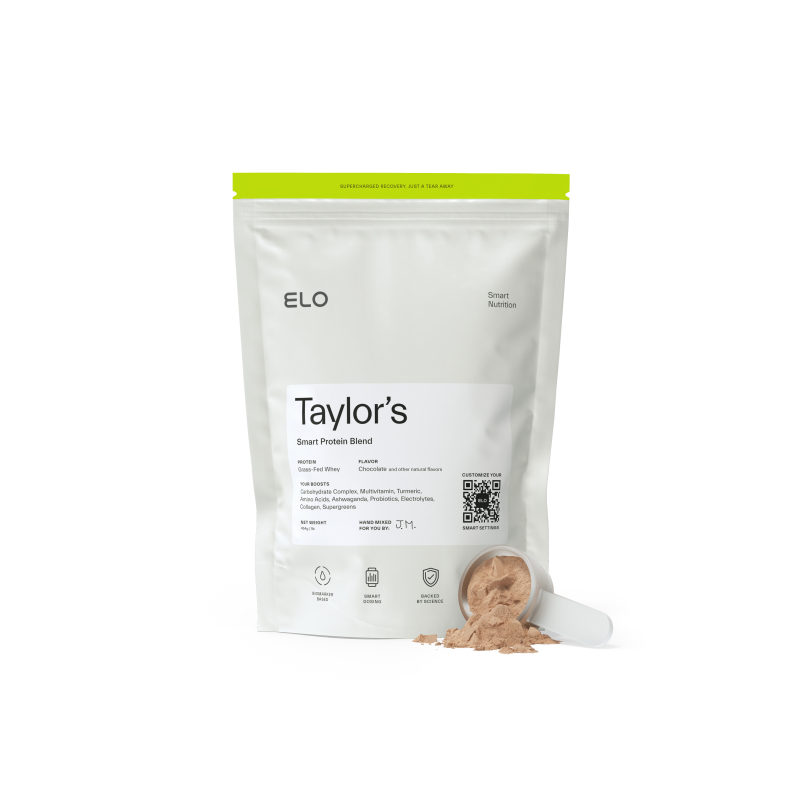
3. Get the right nutrient combo for your recovery needs.
While it’s important to prioritize protein after a hard workout, science suggests that it’s not the only thing you should focus on.
Research shows that having a 3:1 ratio of carbs-to-protein in a post-workout meal or snack may enhance protein synthesis and boost recovery [ 4 certain supplements
Your Elo Smart Protein will come with custom boosts (such as a carbohydrate complex, ashwagandha, turmeric, and probiotics) that have been shown to further improve health, recovery, and performance. These boosts are determined based on your answers to a health questionnaire in the Elo app, and can be adjusted by Elo Health Coaches and dietitians to fit your needs.
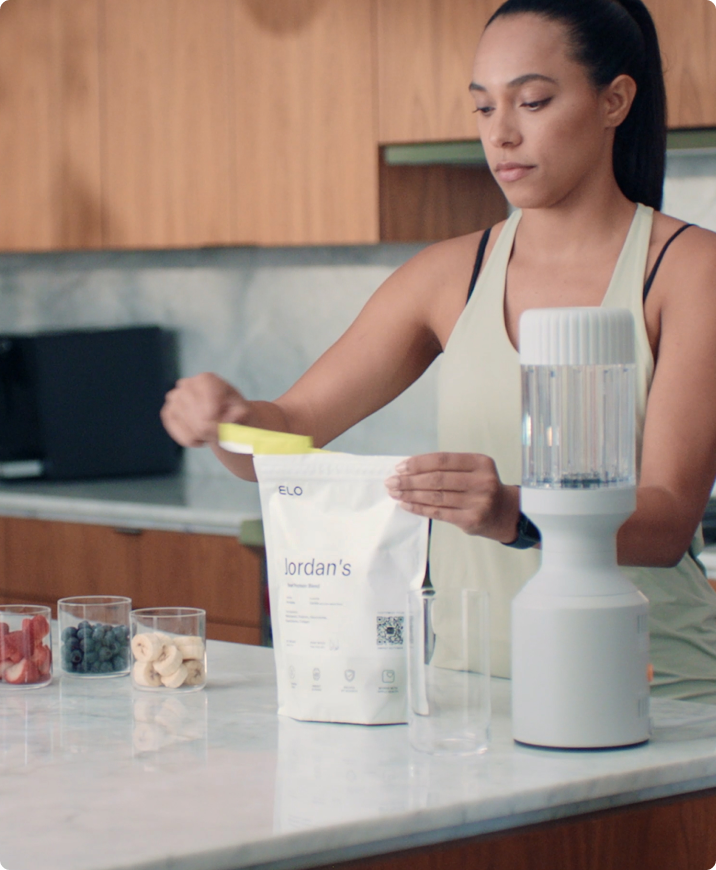
FAQs on Elo Smart Protein
Who is Elo for?
To subscribe to Elo Smart Protein, you must be over 18 years of age, live in the United States, and have an iPhone.
How many servings are in each bag?
Because we recommend specific protein dosing based on your workout data, serving sizes will vary depending on the intensity and frequency of exercise. However, each bag of Smart Protein can contain around 14 scoops (~34 g of protein/scoop).
Which wearable devices and fitness apps are compatible with Elo?
All devices and apps that send workout data to Apple Health are compatible with the Elo app.
Is my data safe?
We are committed to protecting your privacy and personal information at Elo and take security very seriously. We are not affiliated with insurance companies or the government. You choose how much information you share with us, and we do not share individual-level information with third parties without your consent. Elo Health keeps all personal information on HIPAA-compliant, secure cloud servers. Personal information is only kept for as long as needed for our legitimate business purposes, after which it is destroyed in accordance with our document retention policies. Your blood sample will be destroyed after the laboratory completes its analysis unless the laboratory’s legal and regulatory requirements require it to maintain physical samples. For more information, refer to our privacy policy
Summary
If you’re looking to improve performance, utilizing personalized protein is a great place to start since getting the right amount of protein at the right time will continue to aid with muscle building, lean body mass, and recovery time.
Elo Smart Protein harnesses the power of wearable technology, individual biomarker data, and AI to create exactly the right protein recovery blend for you. Smart Dosing draws data from your wearables and fitness apps to provide specific protein dosing recommendations after every workout. Each Smart Protein dosage is calculated based on the activity you completed, your body weight, and the leucine content of your mix–this way, you’re never left guessing how much protein to take and when.
Disclaimer: The text, images, videos, and other media on this page are provided for informational purposes only and are not intended to treat, diagnose, or replace personalized medical care.
Key takeaways
Elo Smart Protein is the world’s most personalized protein powder and is perfect for exercise enthusiasts of any age who want to maximize post-workout recovery.
Smart Dosing refers to the custom protein dosing recommendations delivered via the Elo app after every workout.
Smart Dosing provides real-time protein guidance based on the intensity and duration of your wearable or app-tracked workout to help you build muscle and recover faster.
Smart Dosing can elevate your performance by giving specific protein recommendations, sending notifications within your post-workout window, and offering the right nutrient combinations for your needs.
References
Phillips, S. M., & Van Loon, L. J. C. (2011). Dietary protein for athletes: From requirements to optimum adaptation. Journal of Sports Sciences, 29(sup1).
https://doi.org/10.1080/02640414.2011.619204
Stark, M., Lukaszuk, J., Prawitz, A., & Salacinski, A. (2012). Protein timing and its effects on muscular hypertrophy and strength in individuals engaged in weight-training. Journal of the International Society of Sports Nutrition, 9(1).
https://doi.org/10.1186/1550-2783-9-54
Jäger, R., Kerksick, C. M., Campbell, B. I., Cribb, P. J., Wells, S. D., Skwiat, T. M., Purpura, M., Ziegenfuss, T. N., Ferrando, A. A., Arent, S. M., Smith-Ryan, A. E., Stout, J. R., Arciero, P. J., Ormsbee, M. J., Taylor, L. W., Wilborn, C. D., Kalman, D. S., Kreider, R. B., Willoughby, D. S., Hoffman, J. R., … Antonio, J. (2017). International Society of Sports Nutrition Position Stand: protein and exercise. Journal of the International Society of Sports Nutrition, 14, 20.
https://doi.org/10.1186/s12970-017-0177-8
Kerksick, C., Harvey, T., Stout, J., Campbell, B., Wilborn, C., Kreider, R., Kalman, D., Ziegenfuss, T., Lopez, H., Landis, J., Ivy, J. L., & Antonio, J. (2008). International Society of Sports Nutrition Position Stand: Nutrient Timing. Journal of the International Society of Sports Nutrition, 5(1).
https://doi.org/10.1186/1550-2783-5-17
Lemon, P. W. R., Berardi, J. M., & Noreen, E. E. (2002). The role of protein and amino acid supplements in the athleteʼs diet. Current Sports Medicine Reports, 1(4), 214–221.
https://doi.org/10.1249/00149619-200208000-00005

